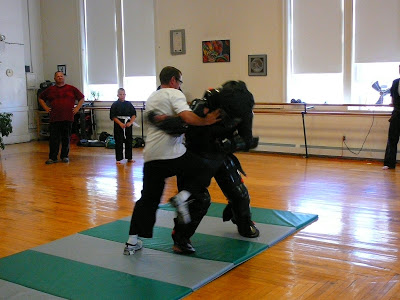Charles Richards
Blog
Weathersfield Karate Camp – Sensei Sullivan
Dale defending against the full body suit guy
Defending against the full body suit guy
Pat defends herself against the full body suit
Colleen explaining bear hug self defense
Self-Defense Seminar Saturday July 30th from 9am to noon
This Self-Defense Seminar is open to the general public and all JRRMAS students – email Sifu: [email protected] or sign up at the Studio to pre-register – print the flyer, hand them out, email them, post them up, help pass the word anyway you can….Hope to see you there!
Whatever you vividly imagine, ardently desire, sincerely believe, and enthusiastically act upon… must inevitably come to pass!
Paul J. Meyer
Tips from Harvard Health Publications on how to keep you mind sharp
To stay at the top of your game, stay on top of your health
A healthy mind relies on a healthy body. Elevated blood pressure and cholesterol, diabetes, excess weight, smoking, and a sedentary lifestyle all contribute to cognitive declines. Working to stay healthy helps you stay sharp.
Stop smoking. In 2010, a National Institutes of Health panel noted that current smokers were 41% more likely to exhibit cognitive declines than former smokers or nonsmokers.
Challenge your mind. Engaging in challenging board games, reading, working crossword puzzles, playing a musical instrument, and acquiring new skills may help keep your mind fit. These activities seem to expand the web of neuronal connections in the brain and help keep neurons nimble and alive.
Challenge your body. Brain cells crave a steady diet of oxygen. Physically active people lower their risk for developing dementia and are more likely to stay mentally active.
Get your rest. Too little sleep can affect memory. Six hours may be the minimum needed, although researchers testing college students found those who had eight hours were better able to learn new skills.
Watch your weight. Staying within a normal weight range lowers your risk for illnesses such as diabetes, hypertension, metabolic syndrome, and stroke, which can compromise the brain to varying degrees.
Check with your doctor. Are there any factors — such as medication side effects, vitamin deficiencies, depression, or chronic conditions — that could be better managed to help you stay as mentally sharp as possible? Discuss these issues with your doctor.
RIP Prof. Wally Jay
Below is a link to Prof. Wally Jay’s obituary – Our thoughts are with Bernice, Leon and his entire family – he was truly a pioneer in modern martial arts and will be sorely missed.
Wally Jay Obituary: View Wally Jay’s Obituary by San Francisco Chronicle

